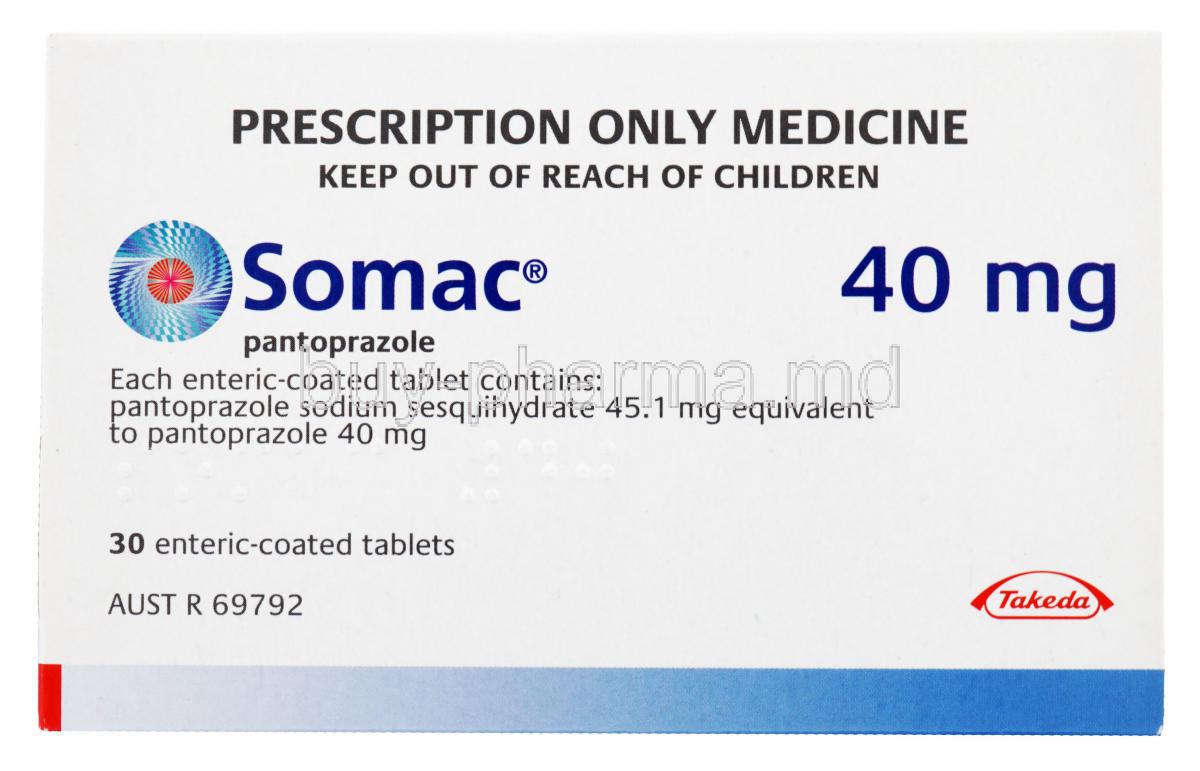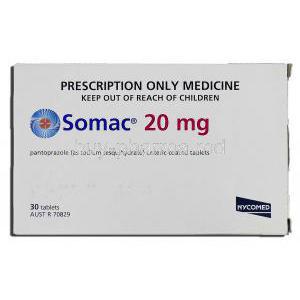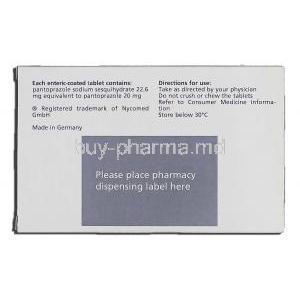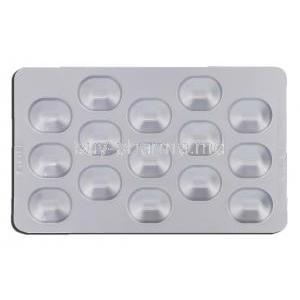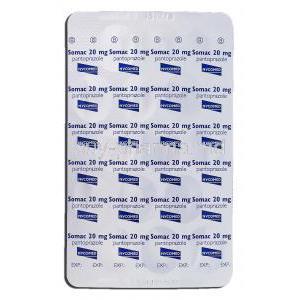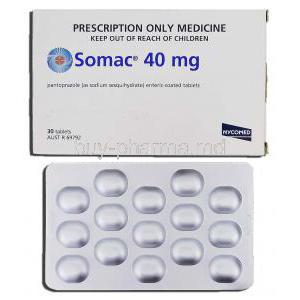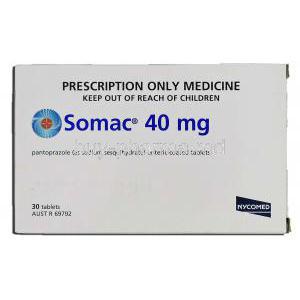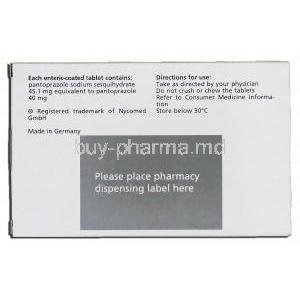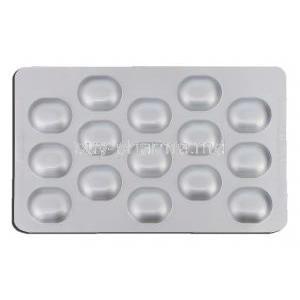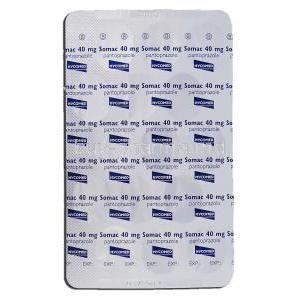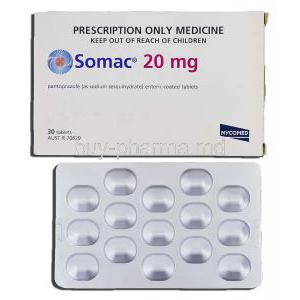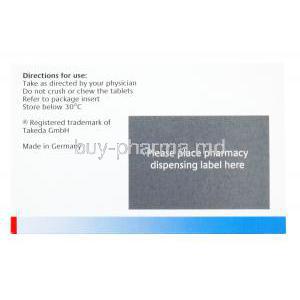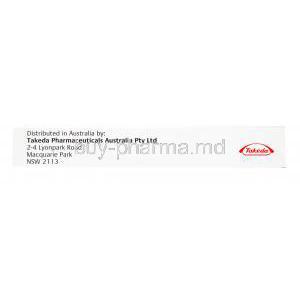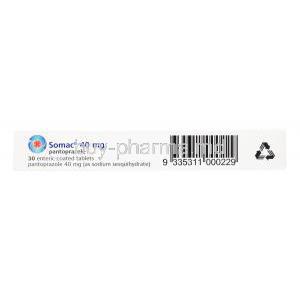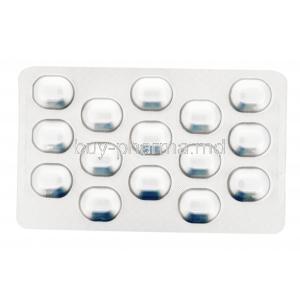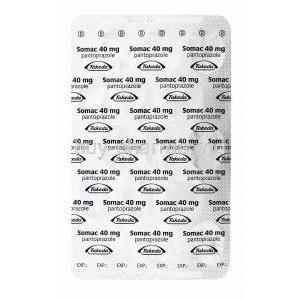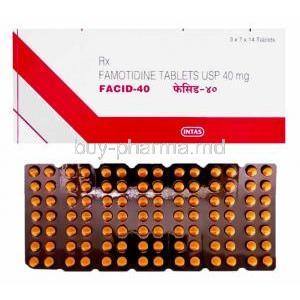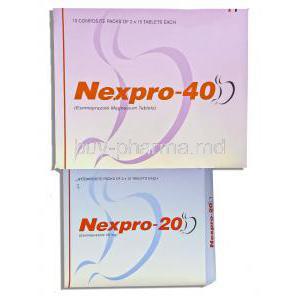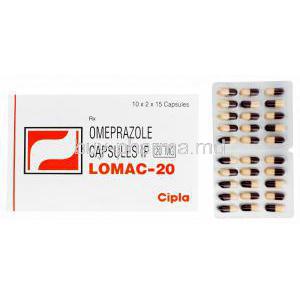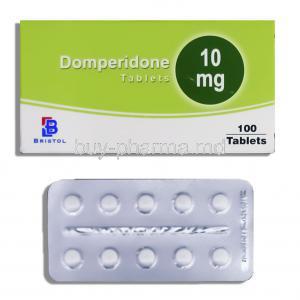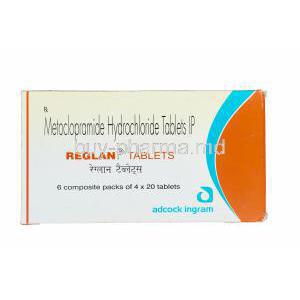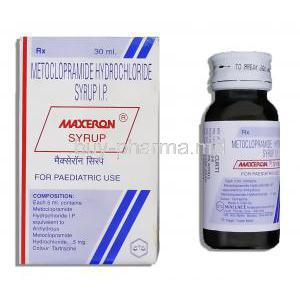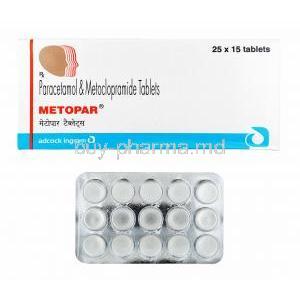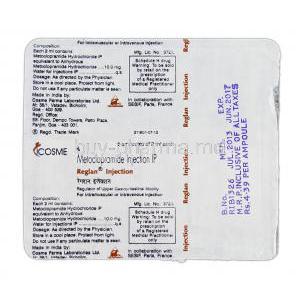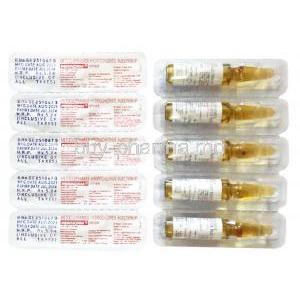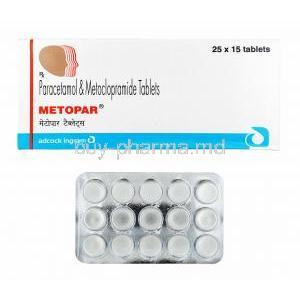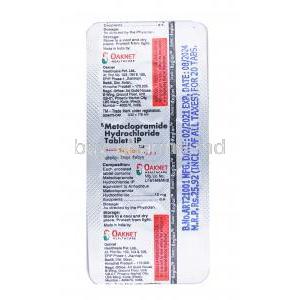Somac
- Introduction
- Uses of Somac
- How Somac Works
- Dosage and Administration
- Composition of Somac
- Common Side Effects
- Side Effects
- Off-Label Use of Somac
- Interactions
- Warnings and Precautions
- Contraindications
- Careful Administration and Important Precautions
- Administration to Special Populations
- Overdosage
- Storage of Somac
- Handling Precautions
Introduction
What is Somac?
Somac, also known as pantoprazole, is a type of medication called a proton pump inhibitor (PPI) mainly used to decrease the production of stomach acid. PPIs, like Somac, have significantly transformed the treatment of acid-related conditions.
Historical Context and Development
The use of proton pump inhibitors started in the 1970s, a breakthrough in gastroenterological treatments. Somac, a product of research efforts, came into existence with improved absorption and longer-lasting benefits compared to previous options.
Uses of Somac
Approved Medical Conditions Treated by Somac
Gastroesophageal reflux disease (GERD) is a condition where stomach acid flows back into the esophagus causing discomfort 1. Zollinger Ellison syndrome is a disorder characterized by excessive production of stomach acid 2. Erosive esophagitis refers to inflammation and damage to the lining of the esophagus due to acid reflux 3.
1: Gastroesophageal Reflux Disease (GERD) | Stanford Health Care 2: Zollinger-Ellison Syndrome | Mayo Clinic 3: Erosive Esophagitis | Mayo Clinic
Benefits and Efficacy
Somac has shown effectiveness in alleviating symptoms of acid-related conditions. It offers relief from signs, aids in the healing of erosive esophagitis, and can reduce the likelihood of ulcers recurring in certain patients.
How Somac Works
Mechanism of Action
Somac works by attaching to proton pumps located in the stomach lining. This process reduces the production of stomach acid, which helps alleviate symptoms and creates an environment for healing.
Pharmacodynamics and Pharmacokinetics
Somac's pharmacodynamics demonstrate its ability to suppress acid. When taken orally, its effectiveness is not influenced by food. It starts working after being absorbed and continues to have an effect for a long time, which makes it convenient for once-daily dosing.
Dosage and Administration
Recommended Dosage
The recommended dosage for adults with GERD is typically 40mg, taken once a day. This treatment can last up to 8 weeks. However, it's important to note that the dosage may differ for medical conditions. It is always advisable to follow the guidance provided by a healthcare professional.

Methods of Administration
It is recommended to take Somac tablets ideally before eating. Make sure to swallow the tablet whole without chewing or crushing it to maintain the effectiveness of the medication.
Dosage Adjustments for Specific Populations
Patients who have liver problems may need to have their dosage adjusted. On the other hand elderly individuals usually don't need any changes in their dosage. It's always advisable to consult a doctor for any adjustments.
Composition of Somac
Active Ingredients and Their Concentrations
Somac relies on pantoprazole as its ingredient. Usually, each tablet contains either 20mg or 40mg of pantoprazole in the form of sodium sesquihydrate.
Inactive Ingredients
Although the active component carries out the role, Somac tablets contain inactive ingredients. These may consist of sodium carbonate, mannitol, and crospovidone.
Common Side Effects
Most Frequently Reported Side Effects
diarrhea, headache, stomach pain, flatulence, and dizziness.
Severity and Duration of These Side Effects
Most of these side effects are usually mild and temporary. They tend to go as the body adjusts to the medication. If they continue or become severe, it's advisable to consult a professional.
Side Effects
Rare but Serious Side Effects
Some potential side effects of reactions include developing a rash, experiencing swelling, and having trouble breathing. It is also possible to experience jaundice, liver problems, and electrolyte imbalances.
Long-Term Side Effects and Their Implications
Long-term use of Somac may have the potential to result in deficiencies in vitamin B12, kidney issues, or even bone fractures. It is essential to monitor and evaluate your condition to address these possible concerns before they become problematic.
Off-Label Use of Somac
Conditions Treated with Somac Beyond its Approved Uses
According to MedicinesFAQ, Somac is used to treat a variety of conditions, including Erosive Esophagitis, GERD With Erosive Esophagitis, Gastro-esophageal Reflux Disease (GERD), Healing, Heartburn, Helicobacter Pylori Infection, Stress Ulcers, Zollinger-Ellison Syndrome, Conditions where a reduction of gastric acid secretion is required, Pathological hypersecretory conditions 1. However, it is important to note that doctors may recommend Somac for dyspepsia, stress ulcer prevention or other conditions that are not explicitly approved by regulatory authorities.
1: Somac : Uses, Dosage, Side Effects, FAQ | MedicinesFAQ
Evidence Supporting Off-Label Usage
Several research studies have delved into the effectiveness of Somac for conditions that are not officially approved. Although there are some results, it is crucial to interpret them cautiously and apply them judiciously in real-world medical settings.
Interactions
Drugs and Substances that Interact with Somac
Some antiretroviral medications, such as atazanavir, A used medication called methotrexate Another medication known as clopidogrel.
The Implications of These Interactions
When you take Somac with medications, it can affect how well the drugs work or potentially cause more side effects. It's important to share a complete list of your medicines with healthcare providers to prevent harmful interactions.
Warnings and Precautions
Situations Where Use is Risky
Using Somac can be risky when there is liver damage or if someone has a known allergy to any ingredients in the medication. It's also important to note that long-term use of Somac can raise the chances of experiencing fractures related to osteoporosis and developing diarrhea associated with Clostridium difficile.
Signs to Watch for When Taking Somac
Feeling unusually tired or weak Urinating colored urine Experiencing swelling in the face, lips or throat Having persistent feelings of nausea or vomiting Experiencing any signs of an allergic reaction
Contraindications
Conditions or Factors That Make Somac Use Unsafe
People who have a confirmed allergy to pantoprazole or other medications called proton pump inhibitors should avoid using Somac. Additionally, it is not recommended to take Somac with products that contain rilpivirine because it can reduce the effectiveness of rilpivirine when the pH levels increase.
Alternative Treatments for Those with Contraindications
If Somac is not suitable for individuals, they may consider other treatment options such as H2 blockers like ranitidine, antacids, or, in severe cases, surgical interventions.
Careful Administration and Important Precautions
Special Considerations for Different Populations
Patients with kidney problems or following a low sodium diet may need consideration because certain forms of Somac contain sodium.
Monitoring and Tests Required During Treatment
Regularly checking liver enzyme levels is crucial, especially when undergoing long-term treatment. It's also essential to monitor magnesium levels, especially if the patient shows signs of low magnesium levels.
Administration to Special Populations
Administration to the Elderly
Dosage Changes: Generally, there is no need to adjust the dosage for individuals unless they have severe liver problems. Advantages: Although Somac effectively reduces acid and provides symptom relief, older adults face a risk of bone fractures, mainly when using the medication for prolonged periods.
Administration to Pregnant Women and Nursing Mothers
Possible Risks to the Unborn Baby or Newborn: While information is available, Somac's effects during pregnancy are not entirely understood. It is uncertain whether it is excreted in milk, but it is recommended to proceed cautiously. Recommendations and Precautions: The use of Somac during pregnancy should only be considered if the potential benefits outweigh the risks. Nursing mothers may want to discontinue the medication or refrain from breastfeeding.
Administration to Children
The use of Somac in patients is limited to specific conditions and age groups due to the lack of sufficient data on its safety and efficacy. The recommended dosage for children with GERD who are five years old or older is usually 20mg once daily. However, it is crucial to consult a pediatrician for guidance.
Overdosage
Symptoms of Overdose
- Blurred vision
- Confusion
- Drowsiness
- Dry mouth
- Flushed skin

Immediate Steps and Interventions Required
If someone experiences an overdose, it is crucial to seek medical help. The treatment primarily focuses on managing symptoms and providing support, including administering medications to prevent nausea and closely monitoring the individual's signs.
Storage of Somac
Recommended Storage Conditions
Keep Somac stored at room temperature, shielded from sunlight and moisture. It's best to hold it in a dry location that is not easily accessible to children or pets.
Shelf-Life and Expiry
Typically, Somac has a lifespan of 24 months. It's wise to avoid using any medication that has exceeded its expiration date to ensure its effectiveness and safety.
Handling Precautions
Safe Handling and Disposal
Make sure your hands are clean when dealing with Somac. You can get rid of any unused medication by using community take-back programs or following the instructions given by a pharmacist.
Precautions for Healthcare Professionals
Healthcare providers should understand the information related to prescribing medications. Gathering a medical history before prescribing and providing guidance about the potential advantages and risks is crucial.

